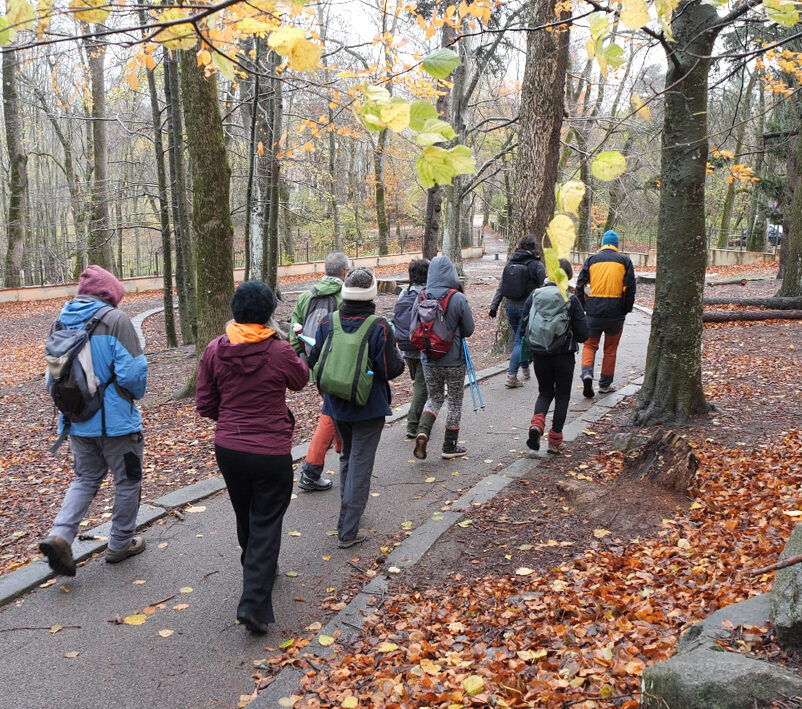The event, to be held on December 4 and 5 at the Science and Technology Park of the University of Girona, will feature presentations and debates on visitor management, natural area planning, and tourism in regions at risk of depopulation.
During the symposium, preliminary results will be presented from a study on over-visitation in four forest areas of Catalonia, conducted within the framework of the Flow4Bio project, along with replicated experiences from this project in other Spanish regions that analyze the impact of mass tourism on protected natural areas across the country.
On December 4 and 5, the Science and Technology Park of the University of Girona will host the first edition of the Leisure Ecology Symposium, two days dedicated to analyzing and discussing how recreational activities affect natural spaces and how they can be planned and managed sustainably.
The event is aimed at professionals in the environmental, tourism, and public administration sectors and seeks to become a meeting point and knowledge exchange hub to improve the management of natural areas in response to the growing number of visitors in recent years. Attendance at the symposium is free of charge, but prior registration is required.
Symposium Topics
The Leisure Ecology Symposium will address topics such as the impacts of recreational activities on biodiversity, visitor management planning, and strategies to reconcile nature conservation with community coexistence in areas at risk of depopulation.
Through technical presentations, roundtable discussions, and debate sessions, participants will explore methodologies and practical case studies aimed at advancing toward sustainable management models for recreational activities in natural areas.
Presentation of Results
The symposium will feature the presentation of preliminary results from a study on over-visitation in four natural areas, conducted within the framework of the Flow4Bio project, which examines how visitor pressure can affect wildlife.
The Flow4Bio project, led by the Emys Foundation, the Forest Science and Technology Centre of Catalonia (CTFC), the Trenca Foundation, and SEO/BirdLife, has also implemented sustainable forest management actions to mitigate the impact of human visitation and improve habitats in four natural areas: the Montseny Natural Park – Biosphere Reserve, the Alta Garrotxa Protected Natural Area, the Ports Natural Park, and the Boumort National Game Reserve. These actions have a demonstrative and replicable nature, combining biodiversity conservation with public use regulation. The results of these actions will also be presented during the symposium.
The symposium will also showcase replicated experiences of the Flow4Bio project in other Spanish regions — including Aragon (Posets-Maladeta Natural Park and the San Juan de la Peña and Monte Oroel Protected Landscape), Asturias (Somiedo Natural Park and Redes Natural Park), the Valencian Community (Penyagolosa Natural Park and Serra Calderona Natural Park), the Balearic Islands (Llevant Peninsula Natural Park and the Natura 2000 site of Cap de Cala Figuera), and the Canary Islands (Garajonay National Park and Anaga Rural Park) — where similar studies have been conducted on the impact of over-visitation in protected natural areas.
These initiatives make it possible to compare results and share learnings among territories that differ greatly — in both habitat types and management approaches — with the goal of improving biodiversity management and the balance between conservation and public use on a national scale.
A Space for Knowledge Exchange
In addition to the technical sessions, the symposium will also offer a networking space for participants, aimed at fostering knowledge transfer and creating synergies among institutions, researchers, and natural area managers.
“The Leisure Ecology Symposium will be a meeting point for everyone working to make the access to and enjoyment of nature compatible with biodiversity conservation,” explains Laia Carbonell, head of the Public Use Area at the Emys Foundation and project coordinator.
The Flow4Bio, Flowing Forests for Biodiversity and People project is supported by the Biodiversity Foundation of the Ministry for Ecological Transition and Demographic Change (MITECO) in the framework of the Recovery, Transformation and Resilience Plan (PRTR), funded by the European Union – NextGenerationEU.

Last modified: 4 November 2025










